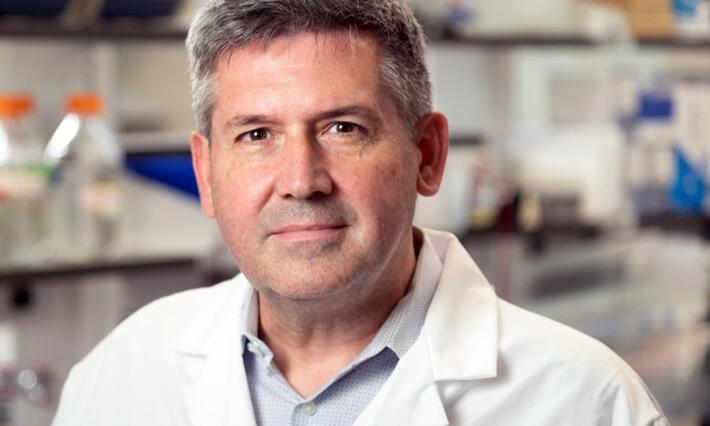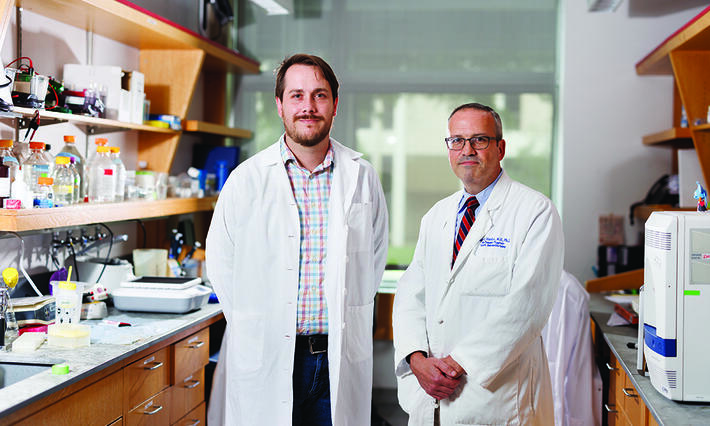New research indicates antibodies produced in tertiary lymphoid structures (TLS) could help target tumor cells and cells in the surrounding environment, enhancing existing immunotherapies for cancer patients.
Jose Conejo-Garcia, MD, PhD, an immunologist and Duke Cancer Institute member, led this study and presented findings at the 2025 American Associate for Cancer Research Immuno-Oncology meeting.
While most cancer immunotherapies focus on T cells, which play a vital role in a person’s immune system and help protect the body from diseases like cancer, Conejo-Garcia and his team focused on how B cells could factor into these treatments. B cells are a type of white blood cell that produces antibodies to help fight pathogens in the body.
“We do not understand why immune checkpoint inhibitors do not work against ovarian cancer, which is an immunogenic disease,” he said. “We’ve found that patients with evident TLS activity had improved outcomes, but we wanted to understand why.”
Using ovarian cancer samples, Conejo-Garcia and his team extracted DNA specifically from TLS to examine how antibodies produced in TLS worked. They found TLS produced highly clonal immunoglobulin A (IgA) and immunoglobulin (IgG) antibodies, which the team previously showed are important to maintain immune pressure against malignant progression.
The team then produced one of these antibodies and used it to restrain the growth of the tumor where the antibody originated. These discoveries indicate that immunologists could trigger TLS in ovarian cancer cells to improve immunotherapy responses.
“We are applying this approach to clone antibodies produced in intra-tumoral TLS that could serve as novel immunotherapeutic tools, in ovarian cancer and other tumors,” he said.
Conejo-Garcia and his team continue to examine how cloning antibodies could impact treatment for cancer patients. The team was recently issued a notice of award from the U.S. Department of Defense, as well as grants for similar methods to identify ways to tailor this approach for cancer prevention.
“We hope to characterize T cells and plasma cells from ovarian tumors, as well as develop therapies based on antibodies and T cell receptors,” Conejo-Garcia said. “We are collaborating with other investigators at Duke to define the potential of tumor-derived antibodies to develop novel cellular immunotherapies or antibody-drug conjugates, with a promising lead so far.”




